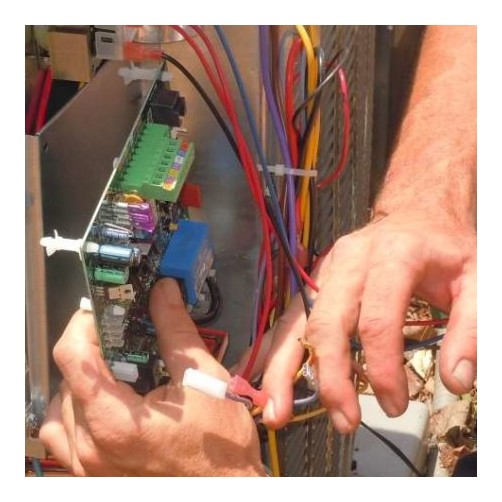
Maximizing Efficiency: Tips for Optimizing Your Residential Heating and Air Conditioning in Gulf Shores, Foley, and Orange Beach Alabama
Residential heating and air conditioning are essential for maintaining comfortable indoor temperatures, especially in areas like Gulf Shores, Foley, and Orange Beach, Alabama where the weather can be unpredictable. However, heating and cooling your home can also consume a lot of energy and lead to high electricity bills. Therefore, it’s essential to maximize efficiency by optimizing your heating and air conditioning systems. Here are some tips for doing just that.
- Regular Maintenance Regular maintenance is key to keeping your heating and air conditioning systems working efficiently. This can include changing the air filters every few months, cleaning the air ducts, checking for leaks, and scheduling regular inspections with a professional HVAC contractor. By keeping your system in top condition, you can reduce energy consumption, prevent costly repairs, and extend the life of your equipment.
- Upgrade Your System Older heating and air conditioning systems can be inefficient and may not be able to provide the comfort you need. Upgrading to newer, more efficient models can save you money on your energy bills and provide more precise control over your indoor environment. Consider investing in Energy Star certified equipment, which meets stringent energy efficiency standards set by the US Environmental Protection Agency.
- Use a Programmable Thermostat Programmable thermostats are an effective way to save energy and money. They allow you to adjust the temperature in your home based on your schedule, so you can turn down the heat or air conditioning when you’re away or asleep. This can save you up to 10% on your energy bills, and most modern programmable thermostats can be controlled through a smartphone app or a voice assistant.
- Seal Your Home Air leaks can allow hot or cold air to escape your home, forcing your heating and air conditioning systems to work harder. To prevent this, seal your home’s doors, windows, and walls with weather stripping or caulk. This will help keep your home at a consistent temperature and reduce energy consumption.
- Insulate Your Home Proper insulation is essential for maintaining a comfortable indoor environment and reducing energy consumption. Insulation can help keep warm air in during the winter and cool air in during the summer. In addition to the walls and roof, make sure to insulate your floors, attic, and basement as well.
- Use Natural Ventilation During mild weather, you can save energy by opening windows and doors to allow fresh air into your home. This can also reduce humidity and improve indoor air quality. However, be mindful of outdoor conditions, such as high humidity or pollen counts, which can negatively impact indoor air quality.
- Invest in Zoning Zoning systems allow you to control the temperature in different areas of your home independently. This means that you can heat or cool only the rooms you’re using, rather than wasting energy on empty spaces. Zoning systems can be installed in both new and existing homes and can provide a more comfortable indoor environment while reducing energy consumption.
In conclusion, optimizing your residential heating and air conditioning systems can not only save you money on energy bills but also create a more comfortable and healthy indoor environment. By scheduling regular maintenance, upgrading your equipment, using a programmable thermostat, sealing and insulating your home, using natural ventilation, and investing in zoning, you can maximize efficiency and make the most of your heating and air conditioning systems. Be sure to consult with a professional HVAC contractor for guidance on which strategies will work best for your home and budget.

